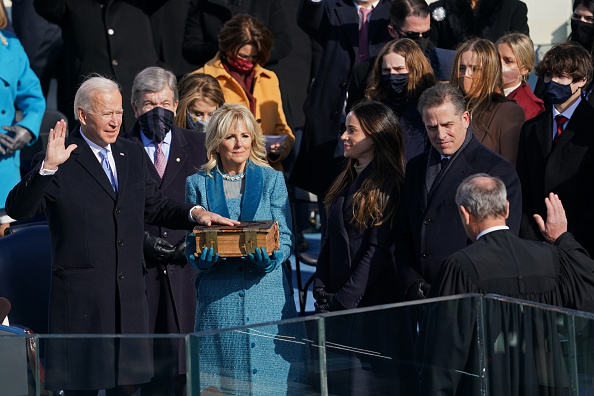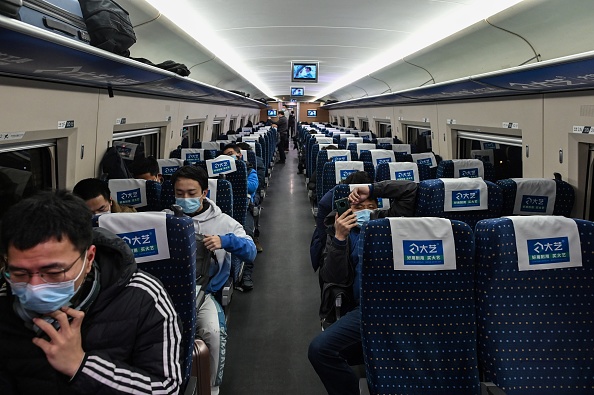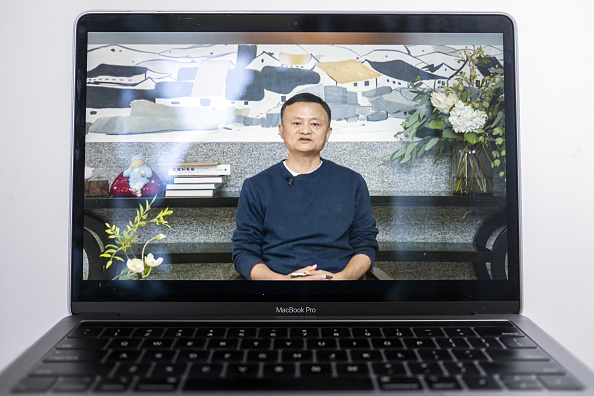
 Biden's China Path
Biden's China PathJoe Biden and Kamala Harris were sworn in as the President and Vice President of the United States this Wednesday at noon. Minutes later, Beijing placed sanctions on 28 outgoing Trump administration officials. The sanctions, which target almost all of former President Donald Trump's China team, including former Secretary of State Mike Pompeo, former National Security Advisor Robert O'Brien, and former U.S. ambassador to the United Nations Kelly Craft, drew criticism from the Biden administration. "Imposing these sanctions on Inauguration Day is seemingly an attempt to play to partisan divides," said Emily Horne, a spokeswoman for President Biden's National Security Council.
The new administration has much work to do on U.S.-China relations, which may be complicated by the former administration's last-minute changes to its China policy. In addition to the lifting of restrictions between Taiwanese and American officials last week, the State Department also designated China's treatment of Uighur Muslims as "genocide," less than 24 hours before Joe Biden's inauguration.
Meanwhile, experts have their eyes on Biden's cabinet picks and who will be heading the new administration's policy towards China. Retired four-star general Lloyd Austin has been confirmed as Defense Secretary, and promised to have a "laser-like focus" on issues related to China. Ely Ratner, former deputy national security advisor to Vice President Joe Biden from 2015 to 2017, has been named special assistant to the Secretary of Defense, while Kurt Campbell has also been named Indo-Pacific Coordinator, with Laura Rosenberger and Rush Doshi given posts on the National Security Council. For more on the Biden administration's strategy for China, read To Win Over Allies, U.S. Must Moderate Anti-China Agenda from Doug Bandow, former Special Assistant to President Ronald Reagan and Senior Fellow at the CATO Institute.
 Another COVID-19 Lunar New Year
Another COVID-19 Lunar New YearChina is experiencing its worst Covid-19 outbreak since March 2020, as healthcare officials have reported over 100 cases a day for over a week. The cases remain clustered around northern China, with Jilin, Hebei, and Heilongjiang provinces experiencing the largest increases, although the death toll remains largely unchanged. While China's caseload is far lower than America's, the rise has prompted Beijing to impose lockdown measures for millions of residents in the northeast and build a massive quarantine facility for up to 4,000 people. 20,000 villagers have also been temporarily relocated from their homes into quarantine sites for the purpose of containing the spread.
The rise is especially untimely with the fast-approaching Lunar New Year holiday. Concerns around travel are high, as millions of people prepare to travel. As of now, the country's National Health Commission is requiring Spring Festival travelers to show a negative test result for COVID-19, which must be administered within seven days of travel.
 Ma Resurfaces
Ma ResurfacesAfter almost three months of avoiding the public eye, Alibaba Founder Jack Ma reappeared this week in a 50-second online video for a livestream event involving rural educators, ending speculation over his whereabouts. The billionaire first disappeared from public view after Chinese regulators canceled the record-breaking $35 million IPO of Ant Group, a financial consulting firm and Ma's newest business venture.
Ma said he had been "learning and thinking" during the past few months and called on Chinese business people to support China's mission of "rural revitalization and common prosperity." The reemergence of the Chinese billionaire injected renewed confidence in investors, causing shares of Alibaba to jump almost 9%. Alibaba's stock has dropped over 15% in the past three months, a marked decline for the e-commerce powerhouse. On the same day of his speech, Beijing issued new regulations regarding non-bank payment platforms, which will include Ant Group's Alipay.
Prepared by China-US Focus editorial teams in Hong Kong and New York, this weekly newsletter offers you snap shots of latest trends and developments emerging from China every week, while adding a dose of historical perspective.
- 2021-01-16 Becoming a "Technological Superpower"
- 2021-01-08 Capital Chaos
- 2020-12-18 All Eyes on 2021
- 2020-12-12 Midwest to Middle Kingdom?
- 2020-12-04 Shifting Winds
- 2020-11-21 Multilateralism on the Move
- 2020-11-14 Staying Tough
- 2020-11-07 Battleground Ballots
- 2020-10-30 Knock Knock
- 2020-10-24 Looking Back and Moving Forward
- 2020-10-16 COVID Cluster
- 2020-10-10 Election Looming
- 2020-10-03 Golden Week Kicks Off
- 2020-09-26 Virtual Diplomacy
- 2020-09-18 Digital Domain
- 2020-09-12 Reframing the Ground Rules
- 2020-09-05 Reciprocity in Action
- 2020-08-29 Who’s Tougher on China?
